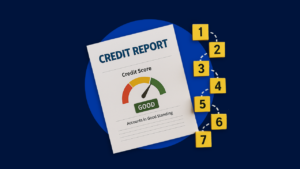6 early payday apps

Key takeaways
- Cash advance apps offer a short-term solution to cover unexpected expenses for those living paycheck to paycheck.
- Cash advance apps generally charge lower fees than traditional payday loans but should be used with caution, as there are still costs involved. Building an emergency savings fund is a more sustainable way to handle unexpected expenses.
- Some of the best payday advance apps also offer budgeting tools and resources to help you manage your finances.
Without an emergency fund to fall back on, issues like a car or an unexpected home repair could cause financial stress.
One common way to cover expenses until the next paycheck is to borrow money that you repay with a future paycheck. Both payday loans and cash advance apps lend you to borrow money ahead of the next payday.
What is a payday advance app?
Payday advance apps, also known as early payday apps or cash advance apps, provide fast cash ahead of your next paycheck, but tend to charge much lower or even no fees compared to payday loan lenders. This makes early payday apps a more cost-effective option for accessing quick cash without getting trapped in a cycle of growing debt.
1. Earnin – Best for hourly workers
- Costs: None, unless you opt for same-day funding
- Max advance: Up to $150/day, with a max of $750 per pay period
- Funding time: 1 to 2 days
- Instant transfer fees: $3.99 per transfer of $100 or less, $5.99 per transfer over $100
Earnin allows you to withdraw future wages quickly without any fees or interest payments attached. Earnin makes money from voluntary tips from users and the fees from same-day transfers but there’s no charge for standard transfers, making the app a true unicorn in the payday lending space.
When you sign up, Earnin will connect to your bank accounts to verify your payment schedule. The app calculates your hours by either tracking via GPS how long you’re at work or you submit a timesheet. The app will then determine the hourly pay rate based on how much money you receive in direct deposit. When the next paycheck hits your bank account, Earnin automatically debits your account for the amount that was borrowed. But be careful. If you don’t have enough money in your account when the automatic debit comes through, you could overdraft.
2. Dave – Best for overdraft protection
- Costs: up to $5 monthly membership
- Max advance: $500
- Funding time: Same-day, unless transferred via ACH to an external bank which takes 2 to 3 business days
- Instant transfer fees: 5% of each advance amount, plus express fees based on the delivery method
A Dave account and the accompanying app look for potential overdrafts — like an upcoming bill — and alerts you before your account is overdrawn, helping prevent the burden of paying overdraft fees. You can use Dave’s ExtraCash feature to borrow up to $500, based on how much you’re able to pay back on the next payday. Users are expected to repay the interest-free advance as soon as their next paycheck is deposited.
Other beneficial features of a Dave account include a checking account that lets you access your direct deposit paychecks up to two days early, a personalized budget plan and a job board dedicated to helping members find ways to earn extra income.
Dave membership has a monthly fee and if you’re so inclined, you also have the option to leave a tip for the funds Dave advances you.
3. Brigit – Best for automated advances
- Costs: free for basic plan (but no cash advance available); Starts at $8.99 a month for the Plus membership and access to cash advance
- Max advance: $250
- Funding time: Instantly for a fee, otherwise 1-2 days at no additional charge
- Instant transfer fees: Free for Brigit Premium members, varies for Plus members
Brigit is a banking app that can help stretch funds between paychecks by alerting you if you don’t have enough in your account to cover upcoming charges. For those who qualify, Brigit will automatically advance you the cash to cover the potential shortfall.
There’s a few hoops to jump through before you’re eligible for an advance with Brigit. First, Brigit needs to connect to a checking account that has an active history of at least 60 days. And, that checking account must have both a positive balance and a record of at least three direct payroll deposits. Brigit will analyze your banking history to determine whether you qualify for instant cash. If you do qualify, you can access up to $250 as a cash advances, although Brigit will set the exact amount based on your ability to repay the advance.
A basic membership is free but doesn’t include access to cash advances. You can either upgrade to Brigit Plus for $8.99 a month, which includes no additional fees for standard cash advances and a small fee for instant advances ,or opt for the Premium membership which costs $14.99 a month and includes no additional fees on same-day cash advances. All levels of membership, including the entry-level free version, include several other features to boost users’ financial health, including a credit builder, identity theft protection, and access to a job board that could help you earn extra income.
4. Current – Best for spending
- Costs: None
- Max advance: $750
- Funding time: 3 days for free, instant access for a fee
- Instant transfer fees: Varies
Current is a checking account available only through a mobile app aimed at those seeking to build up their credit. The app offers payday advances and free overdraft coverage for those who have a qualifying debit card account.
To be eligible for Current’s Paycheck Advance feature, you must receive at least $500 in eligible recurring payroll deposits either to your Current account or link to an eligible third-party bank account showing at least $500 in recurring payroll deposits. Once you’re established, you can receive early payment within three business days, or pay a small fee that will be disclosed to you in the app to receive the funds instantly.
Current’s other benefits include a debit card that earns points back on purchases with participating merchants that can be redeemed for extra cash.
Current also instantly releases pre-authorized holds on debit card purchases at places, such as gas stations, that can typically place a hold on your account for up to 10 days. Current releases the hold, sending the funds back to your account.
5. Chime – Best for those tired of bank fees
- Costs: None
- Max advance: $500 paycheck advance
- Funding time: Within 24 hours; instantly for a fee
- Instant transfer fees: free for standard or $2 per instant transfer
The Chime Checking Account includes the MyPay feature, which allows you to access up to $500 of your paycheck within 24 hours for a flat $2 fee. Or, you can use your Chime account’s Get Paid Early feature which gives you access to your paycheck up to two days early.
The Get Paid Early feature has no fees attached and just requires setting up your direct deposit of your paychecks into your Chime account.
Chime also includes the SpotMe service, which allows you to overdraw your accounts up to $200 without any overdraft fees. Chime will deduct the overdraft amount from your next paycheck.
6. DailyPay – Best for those who receive direct deposits
- Costs: None
- Max advance: Up to $1,000 per day or a maximum of five transfers per day
- Funding time: Instantly (for a fee) or 1-3 days
- Instant transfer fees: None
DailyPay allows you to to transfer earnings from hours worked early, even up to daily. Your employer must be enrolled with DailyPay for you to use the feature. The app charges a fee for instant early payday transfers.
Unlike some other early payday apps, the money you transfer over with DailyPay doesn’t need to be paid back — it’s money you already earned. Instead, it’s subtracted from what would otherwise be your weekly or biweekly paycheck.
When you make a transfer using DailyPay, it can be deposited to a checking account, high-yield savings account or a debit card.
Pros and cons of using a cash advance app
Though cash advance apps can help to cover emergency expenses, there are also some risks to consider with using them.

Pros
- Allows access to funds to cover emergency expenses ahead of the next paycheck.
- Cash advance apps come with much lower fees — or none at all — than payday loans.
- Some of the apps come with helpful budgeting tools and other financial guidance.
- With a cash advance app, you can more easily avoid overdraft fees by funding your account before it is overdrawn. Some of the apps will even automatically cover overdrafts.

Cons
- Cash advances can lead to a debt trap when users aren’t able to pay back the loan with their next paycheck.
- The apps may encourage bad spending habits, since the advance funds don’t necessarily need to be spent only in emergencies.
- Some of the apps still come with fees, even if those fees are lower than what payday loans cost.
- The terms, conditions and potential fees can be confusing for those who may not understand all the fine print
Alternatives to a cash advance app
Payday advance apps are good for unexpected expenses that crop up between paychecks. However, you are limited by your paycheck — and will need to repay the amount you borrow by your next payday. If you need a large amount or more time to pay off your loan, consider one of these alternatives.
Emergency loans
An emergency loan is a type of loan that can quickly cover unexpected expenses, such as medical expenses and home repairs. There are several options available, so do your research before committing to a lender. Your credit score and income will be key factors in the APR you receive. Comparing emergency loan rates from multiple lenders can help ensure that you find the lowest APR for your loan.
Credit card cash advances
If you have a credit card, you may have access to a short-term cash advance option. You won’t have to open a new account and may even be able to access the cash at a local ATM. Read the fine print on your credit card agreement, though. There is typically a 3 percent to 5 percent fee. Plus, cash advances usually come at a higher interest rate than regular purchases. Interest starts accumulating immediately rather than after a grace period.
Buy now, pay later apps
If you need to buy something important between paychecks, a buy now, pay later (BNPL) service may help you spread the payment out and avoid turning to a payday loan to make ends meet. Some options may charge interest or other fees, but a Bankrate survey found that over half (56 percent) of BNPL users say they’ve experienced at least one problem, like overspending, missing payments and regretting purchases, while using the service.
401(k) loans
With a 401(k) loan, you can avoid paying penalties that typically accompany an early withdrawal, and there is no credit check requirement — but you lose out on potential tax-free earnings and may set your savings back. There are also restrictions in place that limit how much you can borrow, and some employers may not allow for early withdrawals due to their plan.
Short-term installment loans
Short-term installment loans are advertised as payday loan alternatives because they offer repayment terms of several months or even years with minimal eligibility requirements. They can be funded as quickly as payday loans in most cases. However, they aren’t cheap. Most charge triple-digit APRs, much higher than other emergency loan options. Some require biweekly payments, which can squeeze your budget if you’re already struggling to cover expenses between paychecks.
Bottom line
The days between pay periods can seem like a major obstacle, especially for those who live paycheck-to-paycheck. Cash advance apps can provide some extra assistance to cover emergency costs, but it’s best to pair them with building an emergency savings fund. That way, you’ll have short-term coverage from the app if needed, while also working towards building a buffer to cover future unexpected expenses.
Why we ask for feedback Your feedback helps us improve our content and services. It takes less than a minute to complete.
Your responses are anonymous and will only be used for improving our website.







